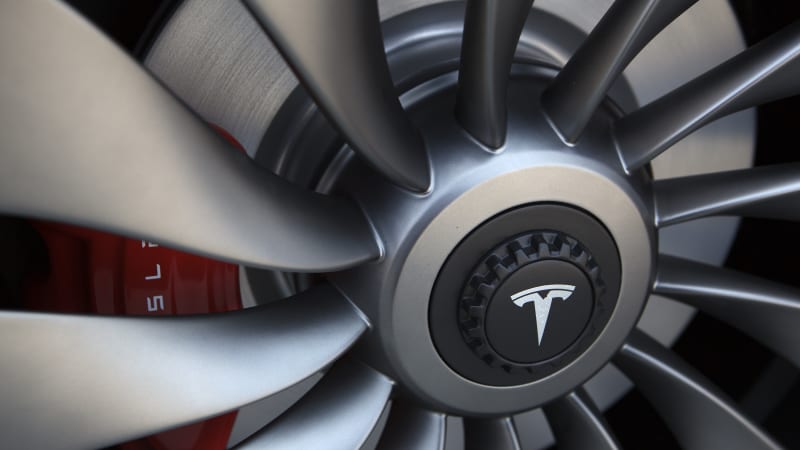
Martin
Tripp, the embattled former Tesla employee
accused of trying
to sabotage the company, has filed a countersuit, seeking at
least $1 million in damages after he said the company and CEO Elon
Musk smeared him in the media.
Tripp's lawsuit in federal court in Reno, Nev., is the latest in a series of public accusations and legal actions involving the former process engineering technician and Tesla. After Musk in June accused Tripp of stealing trade secrets and hacking Tesla's manufacturing operating system, Tesla sued Trippin federal court in Nevada. Tripp later filed a whistleblower complaint with the SEC alleging Tesla was misleading investors about production numbers, was installing unsafe, damaged batteries into Model 3s and was engaging in wasteful production practices inconsistent with its mission to lead on environmental sustainability.
In his newest filing, Tripp and his lawyer are seeking to dismiss Tesla's original suit. They reject claims that he hacked into Tesla systems and that he registered his concerns because he didn't receive a promotion, as Musk claimed. The countersuit also cites a Tesla spokesperson's claim that the company had received a call from a friend of Tripp saying that Tripp would come to the Gigafactory to "shoot the place up." Police later investigated and said there was no threat. It said Tripp and his wife and young child were forced to relocate, he has lost weight and had trouble sleeping and has experienced marital relationship problems.
"Since his employment with Counterdefendent ended, Mr. Tripp has received numerous threats to his personal safety, which, upon information and belief, have been stirred by the foregoing false and defamatory statements published about him by Counterdefendent," the complaint reads. "Mr. Tripp has even been followed and trailed on multiple occasions by unidentified individuals."
Tripp is a former Naval aviation electronics engineer who was assigned to work on the production lines at Tesla's Gigafactory in Nevada for the battery module and the stator, where he had direct responsibility for reporting scrap and non-conforming material volumes to superiors. He claims that the company began generating enormous amounts of scrap waste beginning in March, when it was scrambling to increase production of the Model 3 to 5,000 units per week, and emailed Musk directly in May with his concerns.
He claims the following day he was reassigned to the battery module production line, where he said he continued to witness troubling practices. He claims that the manufacturing operating system shows that from January to mid-May, between $150 million and $200 million worth of battery module parts had been categorized as scrap.
Tesla hasn't commented on the countersuit. The company is set to report its second-quarter earnings later Wednesday.
Tripp's lawsuit in federal court in Reno, Nev., is the latest in a series of public accusations and legal actions involving the former process engineering technician and Tesla. After Musk in June accused Tripp of stealing trade secrets and hacking Tesla's manufacturing operating system, Tesla sued Trippin federal court in Nevada. Tripp later filed a whistleblower complaint with the SEC alleging Tesla was misleading investors about production numbers, was installing unsafe, damaged batteries into Model 3s and was engaging in wasteful production practices inconsistent with its mission to lead on environmental sustainability.
In his newest filing, Tripp and his lawyer are seeking to dismiss Tesla's original suit. They reject claims that he hacked into Tesla systems and that he registered his concerns because he didn't receive a promotion, as Musk claimed. The countersuit also cites a Tesla spokesperson's claim that the company had received a call from a friend of Tripp saying that Tripp would come to the Gigafactory to "shoot the place up." Police later investigated and said there was no threat. It said Tripp and his wife and young child were forced to relocate, he has lost weight and had trouble sleeping and has experienced marital relationship problems.
"Since his employment with Counterdefendent ended, Mr. Tripp has received numerous threats to his personal safety, which, upon information and belief, have been stirred by the foregoing false and defamatory statements published about him by Counterdefendent," the complaint reads. "Mr. Tripp has even been followed and trailed on multiple occasions by unidentified individuals."
Tripp is a former Naval aviation electronics engineer who was assigned to work on the production lines at Tesla's Gigafactory in Nevada for the battery module and the stator, where he had direct responsibility for reporting scrap and non-conforming material volumes to superiors. He claims that the company began generating enormous amounts of scrap waste beginning in March, when it was scrambling to increase production of the Model 3 to 5,000 units per week, and emailed Musk directly in May with his concerns.
He claims the following day he was reassigned to the battery module production line, where he said he continued to witness troubling practices. He claims that the manufacturing operating system shows that from January to mid-May, between $150 million and $200 million worth of battery module parts had been categorized as scrap.
Tesla hasn't commented on the countersuit. The company is set to report its second-quarter earnings later Wednesday.
